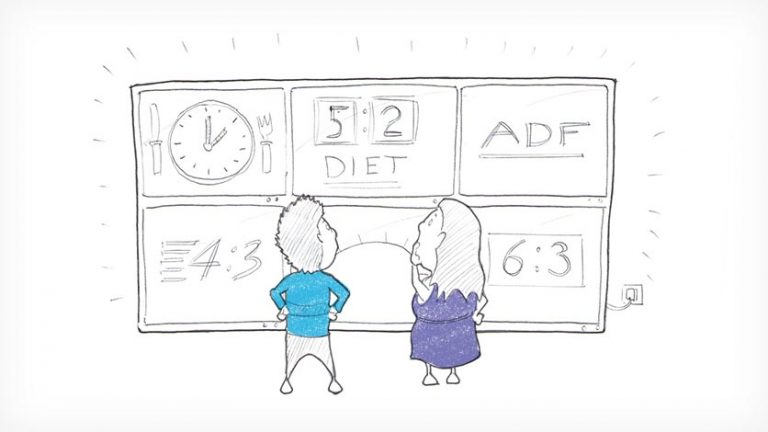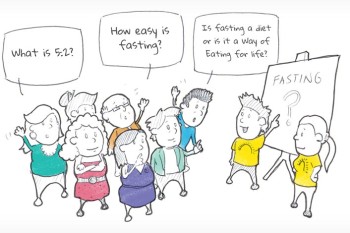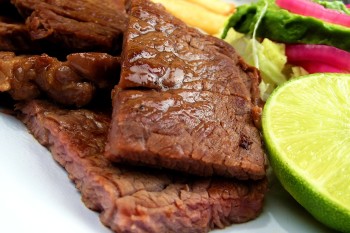If fasting two days a week seems too little but fasting on alternate days sounds too much, you could try splitting the difference and fasting 3 days a week. This gives the advantage of being able to have the weekends free to indulge (if you want) and being able to have the same fast days each week, making planning your life much easier.
Many people in the FastDay community have adopted this method, generally fasting on Mondays, Wednesdays and Fridays. As with 5:2 and ADF, you eat around 500 calories on fast days (600 calories for men) and eat normally on the non-fast days.
Is this the intermittent fasting method for you? Jump to Getting started: your first fasts
Why I like 4:3
Forum member MaryAnn says: “I chose 4:3 in particular because I wanted to drop some weight quickly before a 10k race. My intention was to switch to 5:2 afterwards, but I liked the rhythm of 4:3, and found it easier to have fewer non-fast days in a row.”
Read why other forum members chose their fasting method
Johnson Up Day Down Day (JUDDD)
The Johnson Up Day Down Day (JUDDD) is probably the first ADF diet to be used for weight loss. The creator of the JUDDD, Dr James Johnson, has published several scientific papers on the benefits of ADF.1 It is slightly more structured than the Every Other Day diet as it starts with an induction phase for two weeks, during which you eat only 500 calories on the down days, but after this you can choose to eat more on the down days if you want slower weight loss or to maintain your weight. Another major difference from the Every Other Day diet is that a diet supplement, termed resveratrol, which is a substance found in small quantities in red wine, is promoted as a means of enhancing the effectiveness of the diet in terms of the health benefits. However, when all the studies on resveratrol were critically reviewed by scientists,2 they found that the evidence for benefit was fairly poor and questioned the marketing of the supplement. Further studies are clearly needed to determine whether it is worth spending money on such a supplement.















